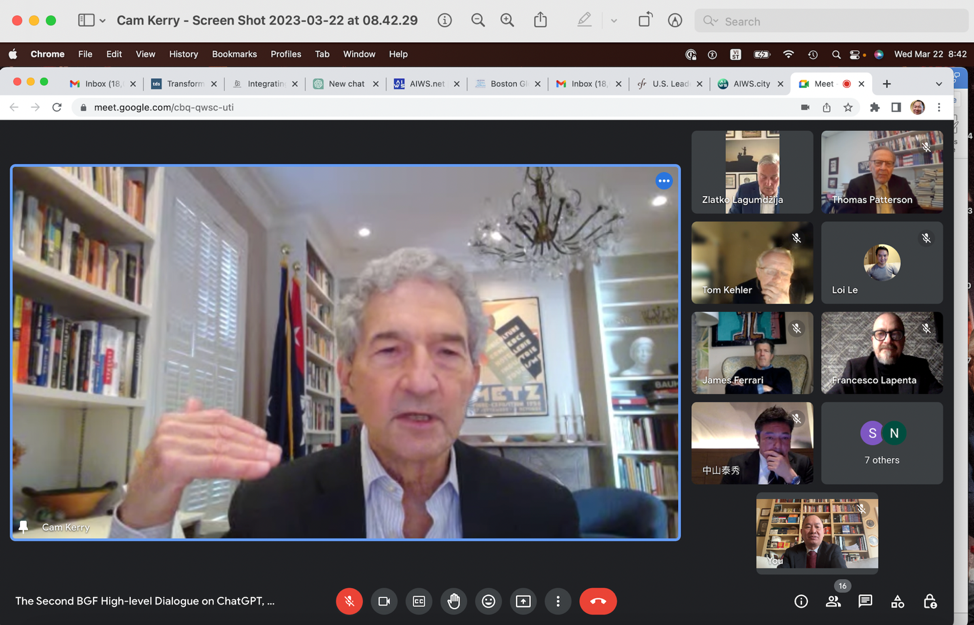The Second BGF High-Level Dialogue on Regulation Framework for ChatGPT, GPT4 and AI Assistants featured three distinguished speakers who shared their valuable insights on the legal and regulatory challenges of using AI assistants in various industries. The event was held on March 22nd, 2023, and was live streamed on YouTube.
Cameron Kerry, the former Acting Secretary for the Department of Commerce, opened his remarks by highlighting the fact that a lot has changed in the AI arena since the BGF in-person conference in December 2022. He cited the announcement by Google of its generative AI assistant Bard just the previous day, as well as public remarks by Bill Gates on rapid developments in AI assistants and research evidence from the UPenn on AI’s impacts on jobs. He underscored the need for humility when approaching AI regulation, citing “crossing the river and feeling the stones underfoot” as a metaphor for the pathway to regulating AI. Cam shared a word about ongoing initiatives at The Brookings Institute on how AI could be used to improve research (in various fields). He spoke about the need for regulatory oversight of AI assistants at both design and policy development stages to ensure that they are used ethically and responsibly. He emphasized the importance of transparency and accountability in the development and use of these technologies, such that any potential for discrimination in AI design, implicit or otherwise, is mitigated for preventing physical and emotional harm and for optimizing equity. He spoke of the urgency of capacity building for research and policy development for AI and AI assistants, that existing models could be used for new policy development. As far as regulation of intellectual property laws for AI (in the U.S.), he called attention to integrating existing patent laws into new IP policies for AI. Patent rights fuel[ed] human genius (Abraham Lincoln). He observed that normative decision-making needs to be made by humans to allow human genius to thrive.
John Clippinger, Founder of Brattle Research Corporation, Research Scientist at MIT Media Labs and former Co-Director of the Harvard Law Lab, discussed the potential impact of AI assistants on privacy and data protection. He highlighted the need for “Privacy by Design” in AI, just as he had first flagged back when Facebook was launched, and Collective Intelligence for the common good.
Tom Kehler, an AI pioneer and Chief Scientist of Crowdsmart, spoke about the challenges of regulating AI assistants in industries such as finance and healthcare. He opened his remarks with Judea Pearl’s observation on expert systems “You are much smarter than your data” as he continued to emphasize the need for striking a balance between innovation and regulation to ensure that AI assistants are developed and used in an ethical and responsible manner. He noted that [we need] balance in new ecosystems where humans and machines are working together and where humans are at the last mile ahead of machines. He offered several examples of collective reasoning for problem solving, including a local initiative on reducing gun violence in Cincinnati and NATO, observing that we have a path forward from examples such as NATO, of collective reasoning for a more cooperative dialogue and action although the context may be different.

